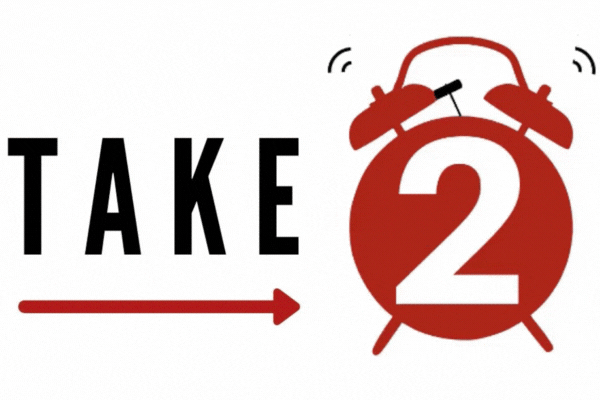Although the 2012 Election is looming nearer and nearer, many students find themselves asking “Why should I care?” The Red Ledger will be profiling a hot-button issue featured this election season every week until Nov. 6, and provide each candidate’s stance on that issue, background context and how it applies to students like you.
THE PATIENT PROTECTION AND AFFORDABLE CARE ACT: WHAT IS IT?
It’s the law that everybody loves to hate. But what does it do, really?
Signed into law in March 2010 by President Obama, The Patient Protection and Affordable Care Act’s main goal is to lower the amount of Americans without health insurance, estimated to be around 50 million people, and lower overall healthcare costs. One of the main (and most popular) provisions of Obamacare was that it banned insurance companies from denying coverage to people based on preexisting conditions. In layman’s terms, this means that you can’t be denied health insurance just because you’re sick.
Problem solved, right? Everybody can get health insurance now. Except one problem- denying people with preexisting conditions is the only way insurance companies make money. Under this scenario, people would only be buying health insurance once they got cancer or diabetes, and insurance companies would go broke paying for everybody’s chemotherapy or dialysis.
The solution is an idea originally proposed by Republicans in the 1990s: the individual mandate. Obamacare’s essential but least liked provision essentially requires that every American purchases health insurance, in a manner similar to car insurance. This increases the customer base for insurance companies, thereby weakening the impact of a whole new bevy of sick people entering the marketplace (and, in theory, making healthcare cheaper for the average American).
For people who cannot afford insurance but are still required by law to purchase it, the government will pay part of insurance payments for people with incomes of up to 400% of the poverty line (about $88,000 for a family of four). The Obama administration is paying for these new subsidies by changing the way doctors are paid- by linking their payment to quality of care rather than quantity- and cutting roughly $716 billion to Medicare, a healthcare program for the elderly, in addition to a few other new taxes and spending cuts. Overall, the politically neutral Congressional Budget Office reports that the Affordable Care Act is expected to lower the national deficit by about $210 billion over the next ten years.
IS IT SOCIALISM?
No. Although this is a popular rallying cry for Republicans, the claim doesn’t hold up. If the president wanted to set up a socialistic healthcare system, he would have disposed of private insurance companies altogether and dispersed healthcare directly from the government to taxpayers. Instead, the president is merely requiring that all Americans pay into a privately-run system- you still have complete freedom in deciding which provider you want, which health care plan works best for you, and which doctor you get to see. This is a claim that has repeatedly failed when held up the scrutiny by fact-checkers, and is one of the most frequently repeated false claims about Obama’s presidency.
HOW DOES IT AFFECT ME?
One of the more popular aspects of the law is that children are allowed to stay on their parents’ insurance plans until they reach the age of 26. I don’t know about you, but I like the idea of going through college and then some without having to worry about how I’m going to pay for my next doctor’s appointment.
Additionally, the Obama administration has found itself in hot water recently with the ACA’S provision that employers offer contraception such as birth control to their employees as a part of their occupational health insurance. Naturally, this has angered some religious organizations, especially Catholics, who object to contraception in all forms and refuse to offer it to their employees on the grounds of disrespecting their freedom of religion established under the First Amendment. (We’ll have more on this situation within the broader scope of Women’s Health in a future post.)
WHAT DOES MITT ROMNEY THINK ABOUT OBAMACARE?
Mitt Romney’s in a bit of a sticky situation. As governor of Massachusetts, Romney passed a healthcare reform law in 2006 that is essentially identical to the ACA. However, candidate Romney has distanced himself from Governor Romney as of late, and today favors a “repeal-and-replace” approach common with most Republicans in Congress. However, he has stated that he does like many aspects of Obamacare and, as president, would opt to keep them intact, such as the outlawing of denying coverage to citizens based on preexisting conditions and children staying on their parents’ plans until age 26, but would repeal the individual mandate. As to what else would pay for the changes, the Romney campaign is vague- this is more of a purposeful move as they try to keep the details focused on President Obama’s record in order to make the theme of the election a referendum on the President instead of a contest between two competent individuals.
WHAT DOES BARACK OBAMA THINK ABOUT OBAMACARE?
Naturally, he supports it. The problem is that most of the country doesn’t. The funny thing about it though is that when polled, most respondents indicate that they like many portions of the law, with the glaring exception of the individual mandate, but overall despise Obamacare. Having the signature achievement of your first term as President being one of the most unpopular pieces of legislation of this election is not good news. That being said, it will be the Obama campaign’s job to try and keep the spotlight focused on Mitt Romney’s lack of a coherent healthcare reform plan.
Have an opinion on Obamacare? Want to share your suggestion for next week’s policy primer? Or just want to learn more about the ACA? Let us know in the comments!





















Douglas Laman • Sep 26, 2012 at 10:23 am
Fascinating stuff